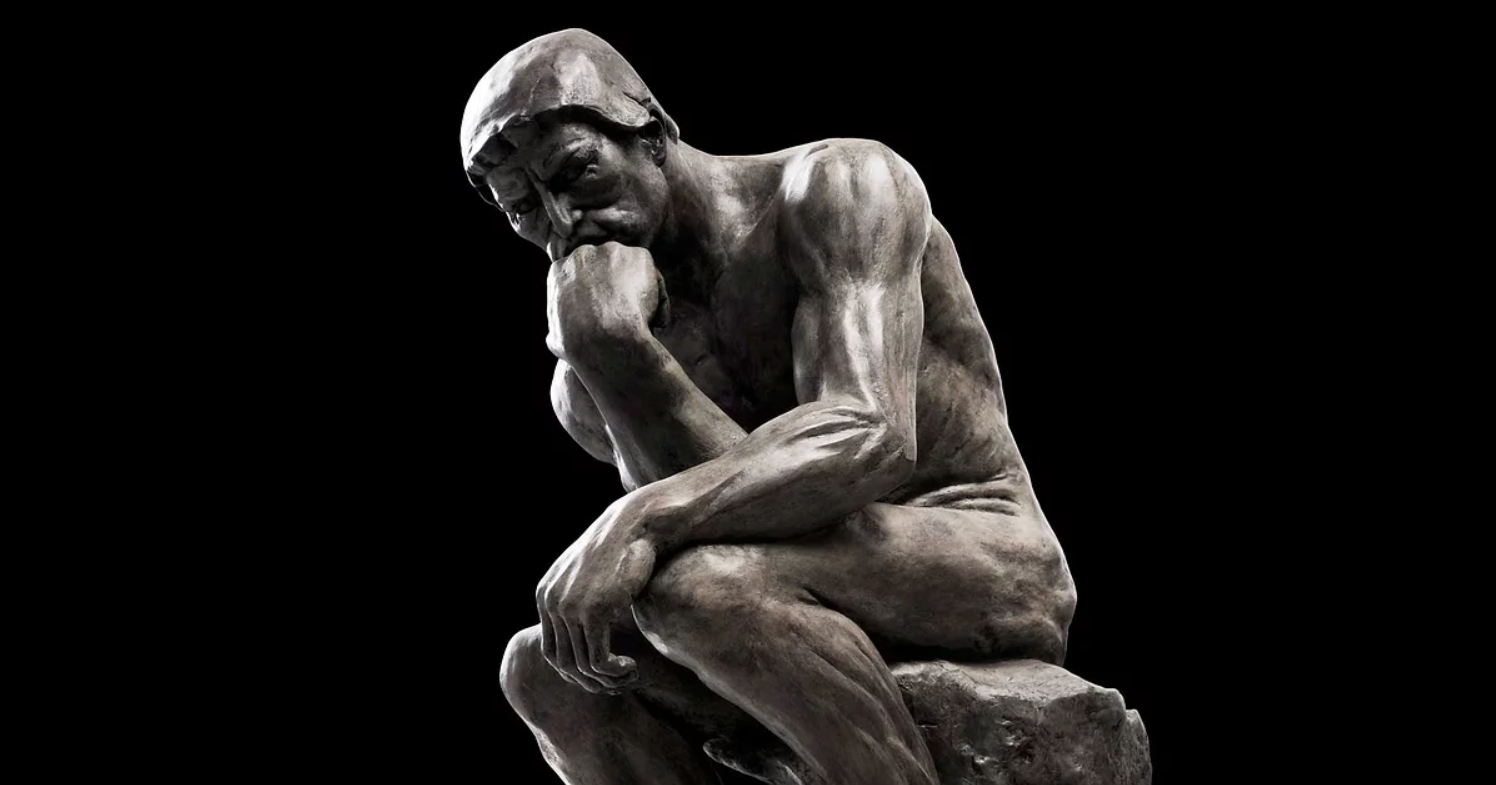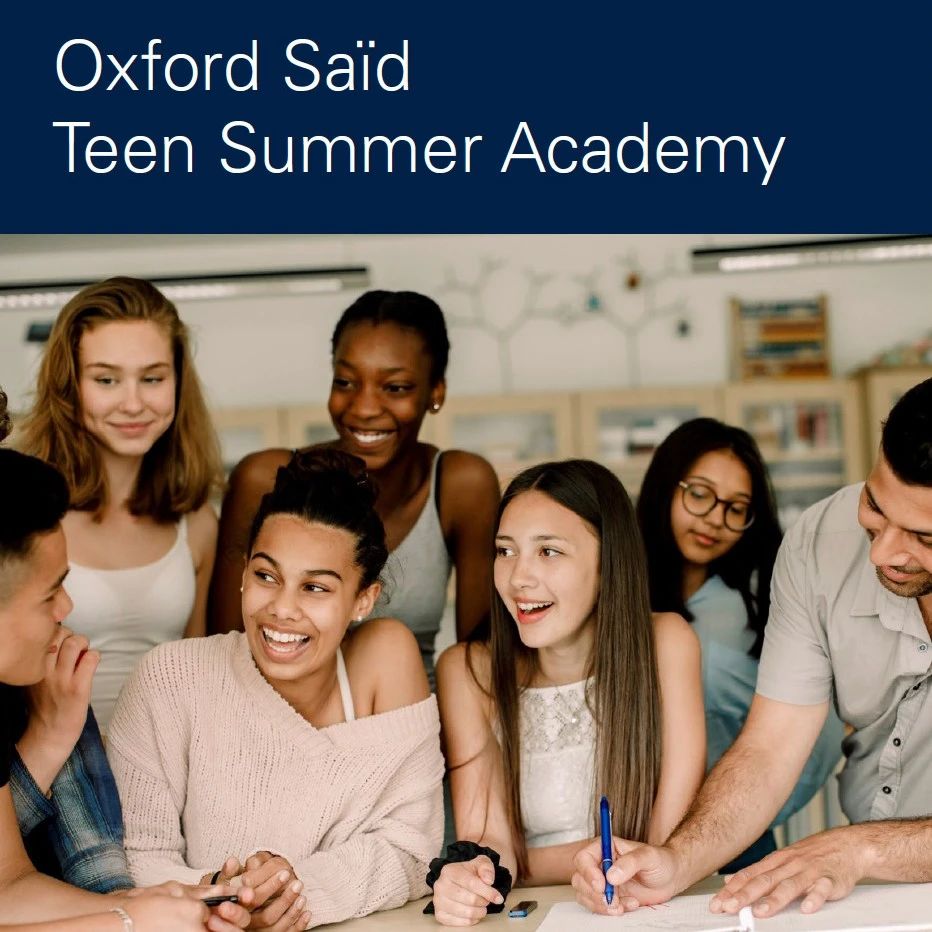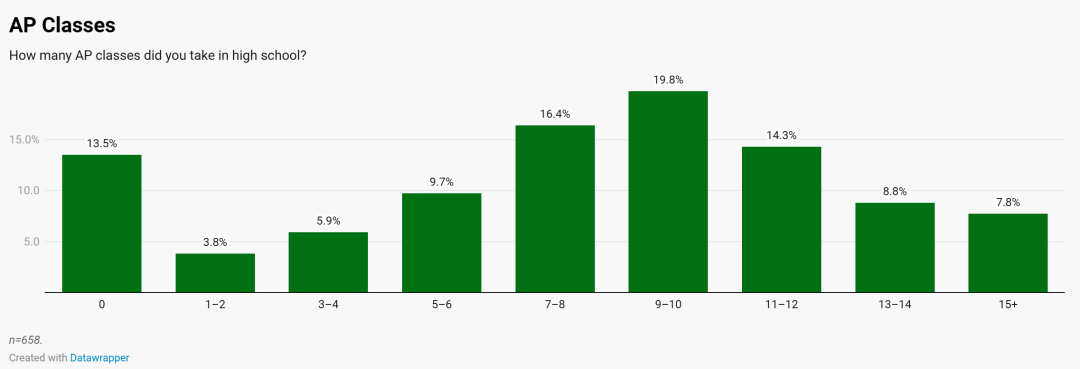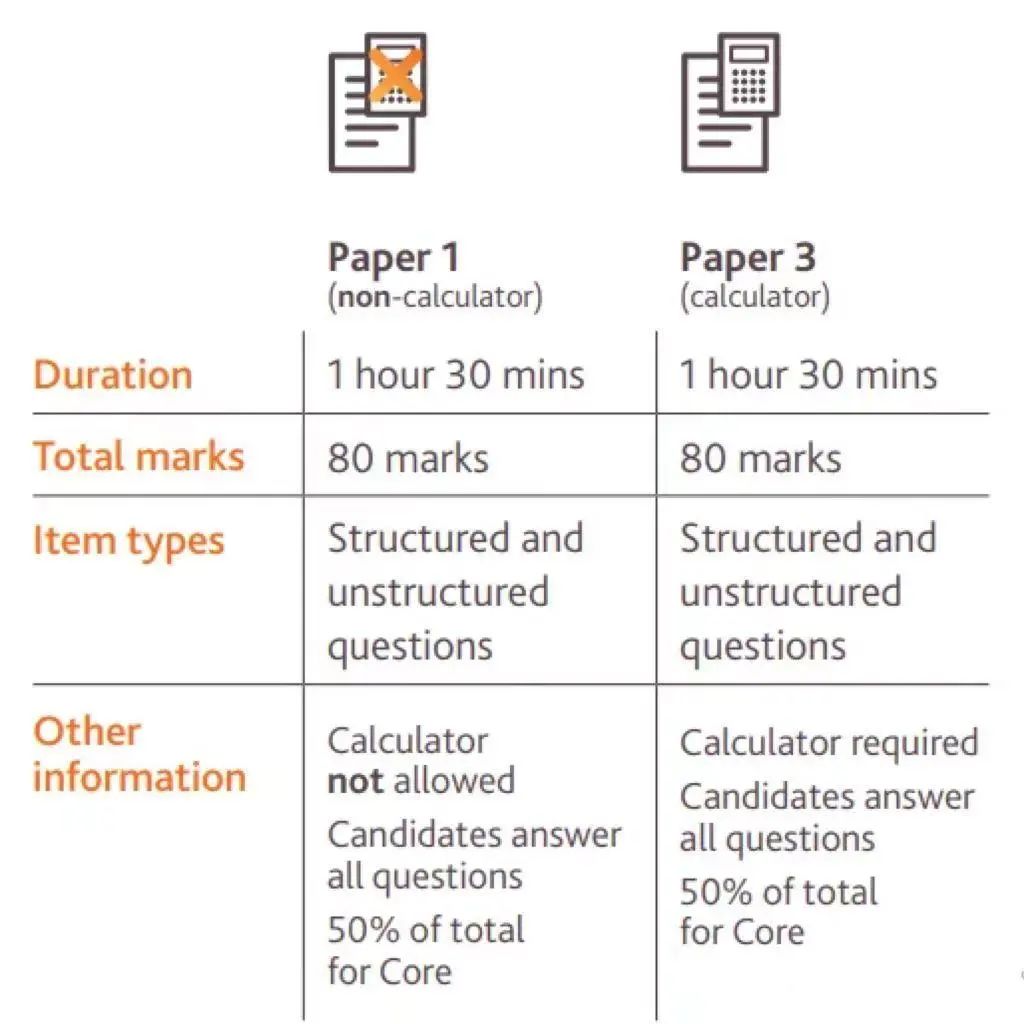文章目录[隐藏]
- I. Introduction
- II. What roles do observation and intuition play in scientific and philosophical knowledge production respectively?
- III. How reliably do they fulfil these roles?
- IV. How exclusively do they occupy these roles?
- V. Conclusion
- 一、简介
- 二、观察和直觉在科学和哲学知识生产中分别扮演什么角色?
- 三、他们履行这些角色的可靠性如何?
- 四、他们对这些角色的排他性如何?
- 五、结论
题目:Is intuition to philosophy as observation is to science?
翻译:直觉之于哲学就像观察之于科学吗?

一等奖原文
I. Introduction
Science and philosophy share the fundamental goal of knowledge production. The former explains and predicts the material universe,[1] and the latter seeks to answer questions within the fields of logic, epistemology, metaphysics, and axiology.[2] This common objective will contextualise my discussion of observation and intuition as means to the end of producing scientific and philosophical knowledge respectively.
Observation and intuition can both be thought of as independent sources of knowledge. When we observe, we receive information either via direct sensory perception or with the aid of instruments.[3] Intuition, on the other hand, is best defined by what it is not. An intuition does not result from inference, memory, testimony, reason, or observation;[4] of these sources, a knower still believes intuitions to be a priori truths.[5] in the absence
The question of whether intuition is to philosophy as observation is to science can be broken down into three sub-questions:
What roles do observation and intuition play in scientific and philosophical knowledge production respectively?
How reliably do they fulfil these roles?
How exclusively do they occupy these roles?
These sub-questions correspond to the bases of comparison of role, reliability, and exclusivity respectively. The extent to which the set of answers for observation coincides with that of intuition is then the extent to which intuition is to philosophy as observation is to science. With this condition in mind, I propose the following answers.
Firstly, observation and intuition both play evidential roles in supporting and refuting scientific and philosophical claims, and productive roles in producing them. They differ, however, in that evidential observation is used deductively when falsifying scientific knowledge claims, while evidential intuition lacks a deductive function.
Secondly, both observation and intuition possess unreliabilities in precision and accuracy. While certain problems can be accounted for in both cases, observation and intuition still feature seemingly unresolvable issues with accuracy, which therefore threaten reliability.
Lastly, the evidential and productive functions of both observation and intuition are non-exclusive, in that they can, in some cases, be substituted by other sources of knowledge.
Thus, I contend that intuition is largely to philosophy as observation is to science, save for the fact that intuition, unlike observation, is not used deductively.
II. What roles do observation and intuition play in scientific and philosophical knowledge production respectively?
In the production of scientific knowledge, the roles of observation are twofold. When applied to a pre-existing claim, observation is evidential, and can be used to support or falsify said claim. Observation can also precede and bring about the production of knowledge, in which case its function is productive. These roles are not mutually exclusive; observation can produce and later support the same claim.
Observation is used as supporting evidence when corroborating a scientific hypothesis. That is to say, if a specific observation P (“This beaker of water boils at 100°C”) corroborates a general claim Q (“Water boils at 100°C”), we have increased confidence that Q is correct.[6] Moreover, as written by Hume, our confidence in Q tends to grow as more instances of P are observed.[7] In this way, through the corroboration of hypotheses, scientists use particular observations of the natural world to support general explanations of its behaviour.
It is important, however, to differentiate between the deductive and inductive uses of evidential observation. To conclude with epistemic certainty that “all swans are white” from observing any number of white swans is to commit the fallacy of affirming the consequent, whereas the mere observation of one non-white swan would suffice to seductively falsify the claim.[8] Therefore, while observation can only serve inductively to support a hypothesis, scientists employ evidential observation deductively when falsifying them.[9]
The productive role of observation is illustrated well by one of science’s most famous anecdotes. One summer, a young Isaac Newton observed an apple fall from a tree. He wondered "why... that apple [should] always descend perpendicularly to the ground", which would later inspire his work on gravity.[10] Science seeks to describe the natural world; the observation of a natural phenomenon can therefore produce scientific knowledge regarding said phenomenon.
Does intuition share the evidential and productive functions of observation? The latter is a significantly less controversial question among philosophers—it seems that, at least sometimes, our intuitions do produce our beliefs. Many philosophers adhered to the justified true belief (JTB) account of knowledge, but adjusted their stances after learning of Gettier-type counterexamples, which produce the intuition that the justified true beliefs they describe do not count as knowledge.[11] If beliefs in the JTB account had caused intuitions regarding knowledge, then Gettier cases would have been dismissed as unintuitive.
The thesis that intuition is used as evidence for and against philosophical beliefs is dubbed Centrality by Cappelen.[12] Opposing Centrality, Cappelen argues that the description ‘intuitive’, when applied to philosophical claims, can be removed or substituted without loss of meaning.[13] Ichikawa explains in support of this claim that we use intuitive propositions not because they are intuitive, but because they are true.[14] As Climenhaga notes, these objections are refuted by the fact that our intuitions tend to coincide with our beliefs, and that our confidence in a given belief does not decrease even with the awareness that it has been caused by our intuitions.[15] Centrality provides the best explanation for this phenomenon. Moreover, beyond treating their own intuitions as evidence, philosophers frequently 'explain away' others' intuitions when used to justify opposing claims or as counterexamples to their own; if intuitions were not seen as evidential, this would be unnecessary.[16]
Like observation, intuition thus serves as evidence for and against philosophical claims. Examples of both cases are ubiquitous in philosophical dialogue;[17] other than the aforementioned Gettier problem, which is an instance of the latter, Searle uses the ‘Chinese room’ intuition pump to support his claim that machines cannot understand—they only simulate the ability to do so.[18]
It appears, however, that evidential intuition is not employed deductively. Sound deductive claims rely on true premises, yet Gutting notes that philosophers tend to avoid this requirement with intuitions, neglecting to account for their truth and simply expecting their audience to share the same intuitions.[19] In many occasions, the deductive premise-conclusion structure is not even adhered to, philosophers instead supporting general claims with individual examples and counterexamples of intuitions.[20] Hence, this is where the evidential role of intuition diverges from that of observation: while observation is used deductively to falsify and inductively to support, the role of intuition is limited to that of support.
III. How reliably do they fulfil these roles?
Sources of unreliability can be split into two categories: imprecisions, referring to qualitative or quantitative inexactitudes or variations, and inaccuracies, meaning distance from the truth. The most apparent hindrance to the reliability of observation is the problem of imperfections in our senses and scientific instruments, classified as random and systematicerror. 21] The former results from unpredictable changes in experimental conditions that usually affect precision, while the latter arises from consistent instrumental defects that typically affect accuracy.[22] account for these errors.[23] Nonetheless, scientists are able to analyse and mathematically account for these errors.[23]
A more pressing inaccuracy arises in the theory-ladenness of observation: that our observations are always interpreted through the subjective 'lenses' of the beliefs, or theories, to which we subscribe,[24] limiting our ability to accurately observe a subject in its entirety. Kuhn outlines three types of observational theory-ladenness:
Firstly, our beliefs can directly affect what we perceive. In an experiment by perceptual psychologists Bruner and Postman, subjects repeatedly mistook wrongly-coloured playing cards for their normal counterparts when viewed quickly.[25] This, according to Kuhn, depicts how our perceptions are affected by pur conceptual resources.[26]
Secondly, our beliefs also influence our semantic understanding of the descriptions of observations.[27] For example, a Newtonian physicist would interpret the word 'mass' to refer to a constant, while an Einsteinian would believe the value described by the same term to depend on the velocity of the object in question.[28] This prevents observers subscribing to different theories from truly understanding descriptions of each other's observations.
Lastly, separate aspects of the same observation may vary in salience based on the theories of the observer. Kuhn proposes the thought experiment of Galileo and an Aristotelian physicist observing a pendulum. The Aristotelian, viewing the pendulum’s bob as falling under a string’s constraint, would have given attention to the bob’s weight, vertical displacement, and time taken to come to rest.[29] In contrast, Galileo would treat pendular motion as restricted circular motion, measuring the string's length, angular displacement, and time per swing.[30]
Our intuitions, like observation, also appear to feature ‘imprecision’, or varying intuitions in response to the same stimulus. Experimental philosophers Petrinovich and O’Neill, when surveying participants, found that moral intuitions varied based on how a dilemma was phrased and the order in which different dilemmas were presented.[31] However, Zamzow and Nichols observe that people are less confident in their responsive intuitions to thought experiments when influenced, even unknowingly, by philosophically irrelevant factors.[32] Confidence, therefore, may be a mechanism to qualitatively determine the imprecision of our intuitions, reminiscent of the calculable experimental uncertainty of observations.
In terms of accuracy, Kahneman suggests that like our observations, our intuitions are also influenced by our beliefs and theories that are 'trained' by our environment.[33] A professional chess player can be said to act on highly accurate intuitions during a game due to the regular environment of chess and repeated practice within it.[34] Contrarily, it is difficult to call philosophy a regular environment: philosophical intuitions span a huge range of topics, and may sometimes extend into non-philosophical domains that provide contextual knowledge.[35] Neither can philosophers reliably practice intuiting, as the accuracy of corrective feedback is hard to determine due to the general lack of consensus in the philosophical community (as opposed to chess, which has easily analysable games and binary win-lose outcomes).[36] Like observation, intuition thus also features an accuracy problem, in that it is difficult to define standards by which the truth of intuitions can be determined in the first place.
IV. How exclusively do they occupy these roles?
Although observation is a heavily utilised evidential source for most of the empirical sciences,[37] exceptions exist in abstract disciplines like theoretical physics. Ellis and Silk criticise string theorists and proponents of the many-worlds interpretation for relying on the "elegance" and explanatory power of their theories, rather than empirical observation, as supporting evidence for their veracity.[38] Since their theories describe unobservable phenomena, an observation also loses the ability to falsify their claims.[39] Regardless of the normative question of whether observation ought to be used as scientific evidence, that the scientific community has, in fact, appealed to alternative sources of evidence shows the non-exclusivity of observation’s evidential role.
Describing non-observational causes of scientific knowledge production may be more difficult as many scientific claims fundamentally result from observation; even theoretical claims like string theory seek to explain observed phenomena.[40] Accounts exist, however, of other unconscious processes producing knowledge claims, such as August Kekulé's dream of an ouroboros inspiring him to describe the ring-shaped structure of benzene,[41] which was only confirmed directly by observation in the following century.[42]
The emergent field of experimental philosophy illustrates well the non-exclusivity of intuition’s evidential role in philosophy. Beyond intuition, contemporary evidential sources have expanded to encompass reaction times,[43] neuroimaging,[44] and human behaviour,[45] using observation, in fact, to support philosophical claims.
Experimental philosophy also features alternative sources of philosophical knowledge production. Schwitzgebel and Rust questioned if ethics professors behaved with higher or more consistent moral standards than their non-ethicist colleagues; only after collecting behavioural data could they formulate the claim that there is generally no variation between ethicists' and non-ethicists' moral behaviour.[46] As a whole, therefore, observation and intuition do not exclusively fulfil their evidential and productive functions.
V. Conclusion
Of the three bases of comparison—role, reliability, and exclusivity—intuition and observation are similar on all counts, with the exception that intuition, unlike observation, does not play a deductive role in philosophy. Thus, I conclude that less the aforementioned difference, intuition is to philosophy as observation is to science.
中文翻译
一、简介
科学和哲学共享知识生产的基本目标。前者解释和预测物质宇宙,[1]后者试图回答逻辑、认识论、形而上学和价值论领域内的问题。[2]这个共同的目标将把我对观察和直觉的讨论联系起来,分别作为产生科学和哲学知识的手段。
观察和直觉都可以被认为是独立的知识来源。当我们观察时,我们通过直接的感官知觉或借助仪器来接收信息。[3]另一方面,直觉最好由它不是什么来定义。直觉并非来自推理、记忆、见证、推理或观察;[4]在这些来源中,知识者仍然相信直觉是先验真理。[5]在缺席的情况下
直觉之于哲学就像观察之于科学一样,这个问题可以分解为三个子问题:
观察和直觉在科学和哲学知识生产中分别扮演什么角色?
他们履行这些角色的可靠性如何?
他们对这些角色的排他性如何?
这些子问题分别对应于角色、可靠性和排他性比较的基础。观察的答案集合与直觉的一致的程度就是直觉对哲学的程度,就像观察对科学的程度一样。考虑到这种情况,我提出以下答案。
首先,观察和直觉在支持和反驳科学和哲学主张方面都发挥着证据作用,在产生这些主张方面发挥着生产性作用。然而,它们的不同之处在于,在伪造科学知识主张时,证据观察被演绎地使用,而证据直觉则缺乏演绎功能。
其次,观察和直觉在精度和准确性上都存在不可靠性。虽然在这两种情况下都可以解决某些问题,但观察和直觉仍然具有看似无法解决的准确性问题,因此会威胁到可靠性。
最后,观察和直觉的证据和生产功能都是非排他性的,因为在某些情况下,它们可以被其他知识来源所取代。
因此,我认为直觉之于哲学,就像观察之于科学一样,除了直觉与观察不同,它不用于演绎。
二、观察和直觉在科学和哲学知识生产中分别扮演什么角色?
在科学知识的生产中,观察的作用是双重的。当应用于先前存在的主张时,观察是证据性的,可用于支持或伪造所述主张。观察也可以先于并带来知识的生产,在这种情况下,它的功能是生产性的。这些角色并不相互排斥;观察可以产生并随后支持相同的主张。
在证实科学假设时,观察被用作支持证据。也就是说,如果一个特定的观察 P(“这个烧杯中的水在 100°C 沸腾”)证实了一个普遍的主张 Q(“水在 100°C 沸腾”),我们就增加了 Q 是正确的信心。[6]此外,正如 Hume 所写,我们对 Q 的信心往往会随着观察到 P 的更多实例而增长。[7]通过这种方式,通过对假设的证实,科学家们使用对自然世界的特定观察来支持对其行为的一般解释。
然而,重要的是区分证据观察的演绎和归纳用途。从观察任意数量的白天鹅中得出“所有天鹅都是白色的”的认知确定性结论是犯了肯定结果的谬误,而仅仅观察一只非白天鹅就足以诱人地证伪这一主张。[8]因此,虽然观察只能以归纳方式支持假设,但科学家在证伪时采用演绎观察。[9]
科学界最著名的轶事之一很好地说明了观察的生产性作用。一个夏天,年轻的艾萨克·牛顿(Isaac Newton)观察到一个苹果从树上掉下来。他想知道“为什么……那个苹果(应该)总是垂直于地面下降”,这后来激发了他对重力的研究。[10]科学试图描述自然世界;因此,对自然现象的观察可以产生关于该现象的科学知识。
直觉是否具有观察的证据和生产功能?后者在哲学家中是一个争议明显较少的问题——似乎,至少有时,我们的直觉确实产生了我们的信念。许多哲学家坚持对知识的正当化真信念(JTB)说明,但在学习了盖蒂尔式的反例后调整了立场,从而产生了他们所描述的正当化真信念不被视为知识的直觉。[11]如果对 JTB 帐户的信念引起了关于知识的直觉,那么 Gettier 案例就会被认为不直观而被驳回。
直觉被用作支持和反对哲学信仰的证据的论点被卡佩伦称为中心性。[12] 反对中心性,卡佩伦认为,当应用于哲学主张时,“直觉”的描述可以被删除或替换而不会失去意义。[13] Ichikawa 解释说,我们使用直觉命题不是因为它们是直觉的,而是因为它们是真实的。[14] 正如 Climenhaga 所指出的,这些反对意见被以下事实所驳斥:我们的直觉往往与我们的信念一致,并且即使我们意识到它是由我们的直觉引起的,我们对给定信念的信心也不会降低。[15]中心性为这种现象提供了最好的解释。此外,除了将自己的直觉视为证据之外,哲学家们还经常“解释”他人的直觉,以证明对立的主张或作为自己的反例。如果直觉不被视为证据,这将是不必要的。[16]
与观察一样,直觉因此可以作为支持和反对哲学主张的证据。这两种情况的例子在哲学对话中无处不在。[17]除了前面提到的 Gettier 问题(后者的一个例子)之外,Searle 使用“中国房间”直觉泵来支持他的说法,即机器无法理解——它们只是模拟了这样做的能力。[18]
然而,证据直觉似乎并没有被演绎地运用。合理的演绎主张依赖于真实的前提,但古廷指出,哲学家倾向于用直觉来避免这一要求,忽视解释他们的真理,只是期望他们的听众分享同样的直觉。[19]在许多情况下,甚至没有坚持演绎前提-结论结构,哲学家反而用直觉的个别例子和反例来支持一般主张。[20]因此,这就是直觉的证据作用与观察的不同之处:观察被用于演绎证伪和归纳支持,直觉的作用仅限于支持。
三、他们履行这些角色的可靠性如何?
不可靠性的来源可以分为两类:不精确,指的是定性或定量的不精确或变化,以及不准确,指的是与事实的距离。观察可靠性的最明显障碍是我们的感官和科学仪器的缺陷问题,被归类为随机和系统误差。 21] 前者是由通常会影响精度的实验条件的不可预测变化引起的,而后者是由通常会影响精度的一致的仪器缺陷引起的。[22]解释了这些错误。[23]尽管如此,科学家们还是能够分析并在数学上解释这些错误。[23]
观察的理论负载出现了一个更紧迫的不准确性:我们的观察总是通过我们所认同的信念或理论的主观“镜头”来解释,[24]限制了我们准确观察一个主题的能力。整体。库恩概述了三种类型的观测理论负担:
首先,我们的信念可以直接影响我们的感知。在感知心理学家布鲁纳和波斯特曼的一项实验中,受试者在快速查看时反复将错误颜色的扑克牌误认为是正常对手。[25]根据库恩的说法,这描述了我们的感知如何受到纯粹概念资源的影响。[26]
其次,我们的信念也会影响我们对观察描述的语义理解。[27]例如,牛顿物理学家将“质量”一词解释为常数,而爱因斯坦主义者则认为同一术语所描述的值取决于所讨论物体的速度。[28]这阻止了赞同不同理论的观察者真正理解对彼此观察的描述。
最后,同一观察的不同方面可能会根据观察者的理论在显着性上有所不同。库恩提出了伽利略和亚里士多德物理学家观察钟摆的思想实验。亚里士多德主义者将钟摆的摆锤视为落入绳索的约束,他会注意摆锤的重量、垂直位移和静止所需的时间。[29]相比之下,伽利略将摆动运动视为受限圆周运动,测量弦的长度、角位移和每次摆动的时间。[30]
我们的直觉,就像观察一样,似乎也具有“不精确”的特征,或者是对相同刺激的反应不同的直觉。实验哲学家 Petrinovich 和 O'Neill 在调查参与者时发现,道德直觉会因困境的表达方式以及不同困境出现的顺序而异。[31]然而,Zamzow 和 Nichols 观察到,当受到哲学上无关因素的影响,甚至是在不知不觉中,人们对他们对思想实验的反应直觉的信心不足。[32]因此,信心可能是一种机制,可以定性地确定我们直觉的不精确性,让人想起可计算的观察实验不确定性。
在准确性方面,卡尼曼建议,就像我们的观察一样,我们的直觉也受到我们的信念和理论的影响,这些信念和理论是由我们的环境“训练”的。[33]由于国际象棋的规则环境和反复练习,可以说职业棋手在比赛中根据高度准确的直觉行事。[34]相反,很难将哲学称为常规环境:哲学直觉跨越了广泛的主题,有时可能延伸到提供上下文知识的非哲学领域。[35]哲学家也不能可靠地练习直觉,因为由于哲学界普遍缺乏共识,纠正反馈的准确性很难确定(与国际象棋相反,国际象棋具有易于分析的游戏和二元输赢结果)。[36]与观察一样,直觉也因此也存在准确性问题,因为很难定义可以首先确定直觉真实性的标准。
四、他们对这些角色的排他性如何?
尽管对于大多数经验科学来说,观察是一种被大量使用的证据来源,但[37]例外情况存在于理论物理学等抽象学科中。埃利斯和西尔克批评弦理论家和多世界解释的支持者依赖于他们理论的“优雅”和解释力,而不是经验观察,作为其真实性的支持证据。 [38]由于他们的理论描述了不可观察的现象,观察也失去了伪造其主张的能力。[39]不管观察是否应该被用作科学证据的规范性问题,事实上,科学界已经诉诸其他证据来源,这表明观察的证据作用的非排他性。
描述科学知识生产的非观察原因可能更加困难,因为许多科学主张从根本上源于观察;甚至像弦理论这样的理论主张也试图解释观察到的现象。[40]然而,存在其他产生知识主张的无意识过程,例如奥古斯特·凯库勒(August Kekulé)对衔尾蛇的梦想,启发他描述苯的环状结构,[41]直到下个世纪才通过观察直接证实. [42]
实验哲学的新兴领域很好地说明了直觉在哲学中的证据作用的非排他性。除了直觉,当代的证据来源已经扩展到包括反应时间、[43] 神经影像学、[44]和人类行为,[45]实际上使用观察来支持哲学主张。
实验哲学还具有哲学知识生产的替代来源。Schwitzgebel 和 Rust 质疑伦理学教授的行为是否比他们的非伦理学同事更高或更一致的道德标准;只有在收集了行为数据之后,他们才能提出伦理学家和非伦理学家的道德行为之间通常没有差异的主张。[46] 因此,作为一个整体,观察和直觉并不完全履行它们的证据和生产功能。
五、结论
在比较的三个基础——作用、可靠性和排他性——中,直觉和观察在所有方面都是相似的,除了直觉与观察不同,它在哲学中不扮演演绎角色。因此,我得出结论,减去上述差异,直觉之于哲学就像观察之于科学一样。
Footnotes
1 Richard Purtill, “The Purpose of Science,” Philosophy of Science 37, no. 2 (1970): 301-06, www.jstor.org/stable/186678.
2 Archie J. Bahm, “What is Philosophy?” The Scientific Monthly 52, no. 6 (1941): 553-60, www.jstor.org/stable/17261.
3 Roberto Torretti, “Observation,” The British Journal for the Philosophy of Science 37, no. 1 (1986): 1-23, www.jstor.org/stable/686995.
4 Nevin Climenhaga, “Intuitions are used as evidence in philosophy,” Mind 127, no. 505 (2018): 69-104, https://academic.oup.com/mind/article/127/505/69/3800471.
5 Ernest Sosa, "Postscript to 'Proper Functionalism and Virtue Epistemology,'" in Warrant in Contemporary Epistemology: Essays in Honor of Plantinga's Theory of Knowledge, ed. Jonathan L. Kvanvig (Lanham, Maryland: Rowman & Littlefield, 1996), 151.
6 Peter Ellerton, “What exactly is the scientific method and why do so many people get it wrong?” School of Historical and Philosophical Inquiry - University of Queensland, last modified November 30, 2016, accessed June 17, 2020,
https://hpi.uq.edu.au/article/2016/09/what-exactly-scientific-method-and-why-do-so-many-people-get-i t-wrong.
7 David Hume, An Enquiry Concerning Human Understanding (Urbana, Illinois: Project Gutenberg, 2006), 36, https://www.gutenberg.org/files/9662/9662-h/9662-h.htm.
8 A. C. Grayling, The history of philosophy (New York: Penguin, 2019), 397.
9 Ellerton, “Scientific method.”
10 Steve Connor, “The core of truth behind Sir Isaac Newton’s apple,” The Independent, January 18, 2010, accessed June 18, 2020, https://www.independent.co.uk/news/science/the-core-of-truth-behind-sir-isaac-newtons-apple-1870915.html.
11 Stephen Hetherington, "Gettier Problems," Internet Encyclopedia of Philosophy, accessed July 05, 2020, https://www.iep.utm.edu/gettier/
12 Herman Cappelen, Philosophy without Intuitions (Oxford: Oxford University Press, 2012), 3.
13 Ibid.
14 Jonathan Ichikawa, "Who needs intuitions? Two Experimentalist Critiques," in Intuitions, ed. Anthony Robert Booth & Darrell P. Rowbottom (Oxford: Oxford University Press, 2014), 236. 15 Climenhaga, “Intuitions are used as evidence in philosophy.”
16 Ibid.
17 Joel Pust, Intuitions as Evidence (New York: Garland Publishing, Inc.), 2.
18 John Searle, “Minds, Brains and Programs,” Behavioral and Brain Sciences 3, no. 3 (1980): 417-57, doi:10.1017/S0140525X00005756.
19 Gary Gutting, "Can Philosophical Beliefs Be Rationally Justified?" American Philosophical Quarterly
19, no. 4 (1982): 315-30, www.jstor.org/stable/20013972.
20 Ibid.
21 John Robert Taylor, An Introduction to Error Analysis: The Study of Uncertainties in Physical Measurements (Sausalito, California: University Science Books, 1999), 94.
22 “Random vs Systematic Error,” UMD Department of Physics - UMD Physics, accessed July 06, 2020, https://www.physics.umd.edu/courses/Phys276/Hill/Information/Notes/ErrorAnalysis.html.
23 “Random and Systematic Errors,” Mathematics & Statistics | Texas Tech University, accessed July 06, 2020, http://www.math.ttu.edu/~gilliam/ttu/s08/m1300_s08/downloads/errors.pdf
24 A. Franklin et al., "Can a Theory-Laden Observation Test the Theory?" The British Journal for the Philosophy of Science 40, no. 2 (1989): 229-31, www.jstor.org/stable/687514.
25 Thomas S. Kuhn, The structure of scientific revolutions (Chicago, Illinois: University of Chicago Press, 1962), 63.
26 Ibid.
27 Ibid., 127
28 Franklin et al., "Can a Theory-Laden Observation Test the Theory?"
29 Kuhn, The structure of scientific revolutions, 123.
30 Ibid., 124.
31 L. Petrinovich & P. O’Neill, “Influence of wording and framing effects on moral intuitions,” Ethology & Sociobiology 17, no. 3 (1996): 145-71.
32 Jennifer L. Zamzow & Shaun Nichols, “Variations in Ethical Intuitions,” Philosophical Issues 19 (2009): 368-88.
33 Daniel Kahneman, Thinking, Fast and Slow (New York: Farrar, Straus and Giroux, 2011), 241. 34 Matthew Allen DeStefano, "The Reliability and Nature of Philosophical Intuitions" (University of Missouri-St. Louis, 2014).
35 Ibid.
36 Ibid.
37 James Bogen, "Theory and Observation in Science," The Stanford Encyclopedia of Philosophy (2020), ed. Edward N. Zalta, accessed July 07, 2020, https://plato.stanford.edu/archives/sum2020/entries/science-theory-observation/.
38 George Ellis & Joe Silk, "Scientific method: Defend the integrity of physics," Nature 516 (2014): 321-23, doi:10.1038/516321a.
39 Ibid.
40 Matthew Chalmers, "The roots and fruits of string theory," CERN Courier, October 29, 2018, accessed July 11, 2020, https://cerncourier.com/a/the-roots-and-fruits-of-string-theory/.
41 Albert Rothenberg, "Creative Cognitive Processes in Kekulé's Discovery of the Structure of the Benzene Molecule," The American Journal of Psychology 108, no. 3 (1995): 419-38, doi:10.2307/1422898.
42 Lonsdale, K.. "The Structure of the Benzene Ring in Hexamethylbenzene". Proceedings of the Royal Society 123A (1929): 494-515. doi:10.1098/rspa.1929.0081.
43 Jonathan Phillips & Fiery Cushman, "Morality constrains the default representation of what is possible," PNAS 114, no. 18 (2017): 4649-54, https://doi.org/10.1073/pnas.1619717114.
44 Joshua Green et al. “An fMRI Investigation of Emotional Engagement in Moral Judgment,” Science 293 (2001): 2105-8, doi:10.1126/science.1062872.
45 Eric Schwitzgebel & Joshua Rust, “The moral behavior of ethics professors: Relationships among self-reported behavior, expressed normative attitude, and directly observed behavior,” Philosophical Psychology 27, no.3 (2014): 293-327, doi: 10.1080/09515089.2012.727135
46 Ibid.
Bibliography
Books
Cappelen, Herman. Philosophy without Intuitions. Oxford: Oxford University Press, 2012.
Grayling, A. C. The history of philosophy. New York: Penguin, 2019.
Hume, David. An Enquiry Concerning Human Understanding. Urbana, Illinois: Project Gutenberg, 2006. https://www.gutenberg.org/files/9662/9662-h/9662-h.htm.
Ichikawa, Jonathan. "Who needs intuitions? Two Experimentalist Critiques." In Intuitions, edited by Anthony Robert Booth & Darrell P. Rowbottom. Oxford: Oxford University Press, 2014.
Kahneman, Daniel. Thinking, Fast and Slow. New York: Farrar, Straus and Giroux, 2011.
Kuhn, Thomas S. The structure of scientific revolutions. Chicago, Illinois: University of Chicago Press, 1962.
Pust, Joel. Intuitions as Evidence. New York: Garland Publishing, Inc.
Sosa, Ernest. "Postscript to 'Proper Functionalism and Virtue Epistemology.'" In Warrant in Contemporary Epistemology: Essays in Honor of Plantinga's Theory of Knowledge, edited by Jonathan L. Kvanvig. Lanham, Maryland: Rowman & Littlefield, 1996.
Taylor, John Robert. An Introduction to Error Analysis: The Study of Uncertainties in Physical Measurements. Sausalito, California: University Science Books, 1999.
Journal articles
Bahm, Archie J. "What Is Philosophy?" The Scientific Monthly 52, no. 6 (1941): 553-60. www.jstor.org/stable/17261.
Climenhaga, Nevin. "Intuitions are used as evidence in philosophy." Mind 127, no. 505 (2018): 69-104. https://academic.oup.com/mind/article/127/505/69/3800471.
DeStefano, Matthew Allen. "The Reliability and Nature of Philosophical Intuitions." University of Missouri-St. Louis, 2014.
Ellis, George & Joe Silk. "Scientific method: Defend the integrity of physics." Nature 516 (2014). doi:10.1038/516321a.
Franklin, A. & M. Anderson & D. Brock & S. Coleman & J. Downing & A. Gruvander & J. Lilly et al. "Can a Theory-Laden Observation Test the Theory?" The British Journal for the Philosophy of Science 40, no. 2 (1989): 229-31. www.jstor.org/stable/687514.
Green, Joshua & Sommerville, R. & Nystrom, Leigh & Darley, John & Cohen, Jonathan. “An fMRI Investigation of Emotional Engagement in Moral Judgment.” Science 293 (2001): 2105-8. doi:10.1126/science.1062872.
Gutting, Gary. "Can Philosophical Beliefs Be Rationally Justified?" American Philosophical Quarterly 19, no. 4 (1982): 315-30. www.jstor.org/stable/20013972.
Lonsdale, K.. "The Structure of the Benzene Ring in Hexamethylbenzene". Proceedings of the Royal Society 123A (1929): 494-515. doi:10.1098/rspa.1929.0081.
Purtill, Richard. "The Purpose of Science." Philosophy of Science 37, no. 2 (1970): 301-306. www.jstor.org/stable/186678.
Petrinovich, L. & P. O’Neill, “Influence of wording and framing effects on moral intuitions.”
Ethology & Sociobiology 17, no. 3 (1996): 145-71.
Phillips, Jonathan & Fiery Cushman. "Morality constrains the default representation of what is possible." PNAS 114, no. 18 (2017): 4649-54. https://doi.org/10.1073/pnas.1619717114.
Rothenberg, Albert. "Creative Cognitive Processes in Kekulé's Discovery of the Structure of the Benzene Molecule." The American Journal of Psychology 108, no. 3 (1995): 419-38. doi:10.2307/1422898.
Schwitzgebel, Eric & Joshua Rust. “The moral behavior of ethics professors: Relationships among self-reported behavior, expressed normative attitude, and directly observed behavior.” Philosophical Psychology 27, no.3 (2014): 293-327.
doi:10.1080/09515089.2012.727135.
Searle, John. “Minds, Brains and Programs.” Behavioral and Brain Sciences 3, no. 3 (1980): 417-57, doi:10.1017/S0140525X00005756.
Torretti, Roberto. "Observation." The British Journal for the Philosophy of Science 37, no. 1 (1986): 1-23. www.jstor.org/stable/686995.
Zamzow, Jennifer L. & Shaun Nichols. “Variations in Ethical Intuitions.” Philosophical Issues
19 (2009): 368-88.
Websites
Bogen, James. "Theory and Observation in Science." The Stanford Encyclopedia of Philosophy (2020), edited by Edward N. Zalta. Accessed July 07, 2020, https://plato.stanford.edu/archives/sum2020/entries/science-theory-observation/.
Ellerton, Peter. “What exactly is the scientific method and why do so many people get it wrong?” School of Historical and Philosophical Inquiry - University of Queensland. Last modified November 30, 2016. Accessed June 17, 2020.
https://hpi.uq.edu.au/article/2016/09/what-exactly-scientific-method-and-why-do-so-many-pe ople-get-it-wrong.
Hetherington, Stephen. "Gettier Problems." Internet Encyclopedia of Philosophy. Accessed July 05, 2020, https://www.iep.utm.edu/gettier/.
“Random and Systematic Errors.” Mathematics & Statistics | Texas Tech University. Accessed July 06, 2020, http://www.math.ttu.edu/~gilliam/ttu/s08/m1300_s08/downloads/errors.pdf.
“Random vs Systematic Error.” UMD Department of Physics - UMD Physics. Accessed July 06, 2020. https://www.physics.umd.edu/courses/Phys276/Hill/Information/Notes/Error Analysis.html.
News articles
Chalmers, Matthew. "The roots and fruits of string theory." CERN Courier. October 29, 2018. Accessed July 11, 2020. https://cerncourier.com/a/the-roots-and-fruits-of-string-theory/.
Connor, Steve. “The core of truth behind Sir Isaac Newton’s apple.” The Independent. January 18, 2010. Accessed June 18, 2020. https://www.independent.co.uk/news/science/ the-core-of-truth-behind-sir-isaac-newtons-apple-1870915.html.















